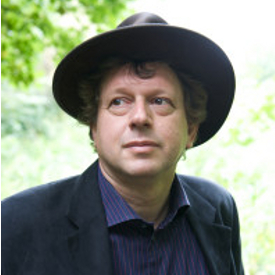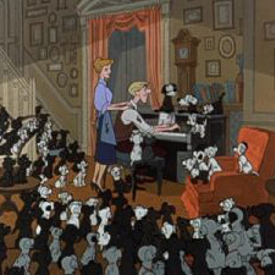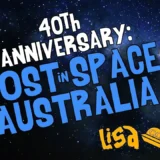Put this one firmly in the Pet Peeves department.
I am sick and tired of hearing about the high-falutin store-bought intellectual cred Lucas gets every time someone not familiar with the TRUE HISTORY OF THE STAR WARS mentions Joseph Campbell in the same sentence.
Lucas has apparently received “honors” for his adaptation of Campbell’s Jungian archetypes (despite being rendered in science fantasy tropes) and I’ll not begrudge him those, but lets get real:
When The Star Wars was first conceived, it had an entirely different origin story. It was called Flash Gordon. Or maybe it was called Kurosawa’s The Hidden Fortress (note the use of “the” in the title).
But more than likely it was called Flash Gordon, as in
“Dear King Features, Hi. I’m the director of American Grafitti and a student film-turned low-budget SF feature titled THX-1138 and I would like to petition the holy ones, or whatever you call them, of King Features, for the right(s) to adapt one of their most successful properties, the adventures of Flash Gordon, for the big screen. I have loved Flash Gordon ever since Republic made their serials (in a few years you’ll see just how much I love serials with cliff-hanger endings between episodes when I work on a blockbuster film called Raiders with another director you may be familiar with, Steven Spielberg) and I really really, really want to put Ming the Merciless (the king Emperor of science fiction villains) up there on the big screen, and, in particular, I would like to devote at least 15 seconds to a high-tech SFX treatment of the light bridge, cause I thought that was particularly cool – walking on light over a giant man-made canyon. Please get back to me ASAP because I need to launch another project really soon. Sincerely, George.”
Cue Francis Ford Coppola: “Don’t look at the camera! Don’t look at the camera! Just go by like you’re fighting!”
Wait. Wrong quote.
Cue Francis Ford Coppola: “George wanted to do Flash Gordon … he met with the people who owned it, and they didn’t take him at all seriously. So he took the Flash Gordon trailers — the diagonal titles that talk about the universe at that point [he means the opening story synopsis that seems to recede from the viewer as it scrolls up] — and sort of combined it with a Stanley Kubrick ‘2001’ world and created his own ‘Flash Gordon.’ ” Lucas says the characters of “Star Wars” are not originals but “tributes.” (The Straight Dope).
And from the newspaper of record, we obtain this summation of Chris Taylor’s history of the film How Star Wars Conquered the Universe:
At the movies’ core, of course, is familiarity: they’re exceptionally good reimaginings of nineteen-thirties sci-fi serials like “Flash Gordon.” As a child, Lucas was addicted to those shows; even in college, the world of military-space fantasy was so alive in his imagination that, according to one roommate, he preferred to “stay in his room and draw star troopers” instead of going out.
He (Lucas) spent years “lightly, unself-consciously building something unusual out of whatever was to hand.” To the “Flash Gordon” formula, Lucas added nineteen-fifties car culture (he was an autocross champion in his teens), the hallucinogenic spirituality of Carlos Castaneda (the release of “Star Wars” coincided with a peak in pot-smoking among high schoolers, Taylor writes, which “certainly didn’t hurt those first-week grosses”), and a Vietnam allegory (the Rebels are the North Vietnamese). He read “The Golden Bough” (Joseph Campbell’s influence is overstated) and channelled Kurosawa (he almost cast Toshiro Mifune as Obi-Wan Kenobi). Amused by the last name of a friend of a friend, Bill Wookey, he repurposed it as the name for Chewbacca and his brethren. (Wookey, who happens to be tall and hairy, had no idea about this until he took his kids to see “Star Wars,” in 1977.) The finished product compresses fifty years of pop culture into two hours of space adventure. NYT: The Crazy History of Star Wars.
It’s pretty clear to anyone with a familiarity with science fiction tropes and science fiction film, that The Star Wars Star Wars Star Wars Episode IV A New Hope is a pastiche of Smithian/Campbellian/Hamiltonian/Raymondian/Nowlian space opera tropes thickly and badly layered over 70s film cliche, with a good dash of Brackettsian planetary romance thrown in…not to mention visual homages to Dune, any one of a number of interplanetary watering holes and a crap ton of Kurosawa. (Oh, and lets not forget the dogfights lifted from WWII movies.)
Badly because not even Doc Smith could write dialogue as badly as Lucas. (Harrison Ford on Lucas dialogue – “I told him quite simply, ‘George, you can type this (expletive), but you sure can’t say it.” The Geek Twins
Quotes and history may convince some, but legions of SW fans who both love and hate their Lucasian god seem desperate for acceptance of their religious icons. Anything that imparts an imprimatur of respectability to their love object will be clung to with the tenacity of Jar Jar Bink’s tongue. More than history is required to convincingly negate this apostasy.
So why the appropriation of Campbell’s monomyth? Because it suggests that Star Wars exists as more than just (poorly rendered) space opera fantasy. It suggests deep thought and philsophizing on the subject by its creator. It justifies the interest and respect, excuses the obsessions. Fans of the franchise have built themselves a shield of intellectual credibility as their defense against accusations of silliness, bad story-telling – not to mention holdovers from the bad ol’ days when all science fiction was looked down upon as fodder for adolescent dreamers with a penchant for voluntarily rotting their brains.
And the academics who had to find some way to justify serious study of the cultural phenom that the franchise had become. Grants are not handed out to study sci fi – but they are handed out to study history, and culture and literature.
In short, it’s nothing more than science fiction’s eternal quest (quest, get it?) for legitimacy among academics and the literati, writ large and with a slightly different cast of characters.
But is it true? Is Star Wars a brilliantly realized exposition of Campbell’s theme of the monomyth? Maybe SF (or, to be more academically precise, science fantasy) doesn’t need to justify itself (never has and attempts to do so are just plain silly) but that doesn’t satisfy the essential question.
Well yes and well no. Star Wars does contain many of the elements of Campbell’s monomyth (a literary theory that is rejected by many, usually with the accusation that Joseph Campbell simply ignored the myths that did not fit his structure), but so does just about every story ever written (or filmed).
Here’s a summary of the monomyth write large:
Departure…Initiation…Return.
In other words, the Hero finds cause to leave her present environs, to go out into the wider world. She is then introduced to “new things” which have a profound effect upon her. She then returns to her place of origin, usually bringing her new found knowledge with her that benefits or changes the society of her origin.
Campbell identified 17 specific elements that take place in the monomyth, but of course, not all of them are present in every tale and they are not always presented in the same order. Which surely allows just about any myth (story) to claim affiliation.
The basic conceit of the monomyth is Jungian; there are collective subconscious themes within all of us that are essential parts of being human and engendered by the human experience – birth, familial relations, death, and these archetypes find their way into all of our stories. (You can see the same thing reflected in depictions of otherworldly creatures, from fairies to alien greys. They all have similar featured because they are generated from our collective subconscious.)
This may or may not be true, but if so, it is certainly true that no matter how much we’d like to think otherwise, George Lucas is human and subject to the same influences as other humans.
If we all unconsciously tell the same story, and that story is the monomyth, than Star Wars is a monomythical tale. Just as Kurosawa’s The Last Fortress is a monomythical tale, just as Flash Gordon is a monomythical tale. It can’t help but be a monomythical tale. It’s all monomyth, all the time!
Proof, as they say, is in the pudding. The script for The Star Wars was written before Lucas was introduced to the explanation for where all that (wonderful) stuff came from. In Lucas’ own words:
“It was very eerie because in reading The Hero with A Thousand Faces I began to realize that my first draft of Star Wars was following classical motifs” (Joseph Campbell: A Fire in the Mind (Larsen and Larsen, 2002, pages 541-543).
Departure…Initiation…Return. If Star Wars had been a conscious appropriation of the monomyth, the story should have gone like this: Initiation…departure…return.
Steve Davidson is the publisher of Amazing Stories.
Steve has been a passionate fan of science fiction since the mid-60s, before he even knew what it was called.










Recent Comments